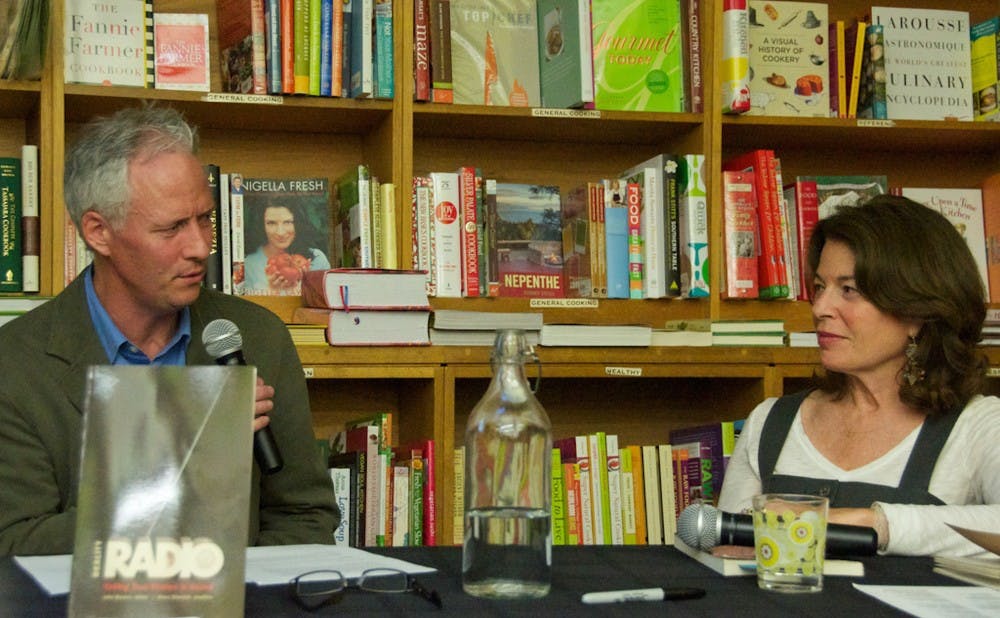“America is aspirational. To me, Obama is what we would like to be, [but] Donald Trump and his supporters are what we are,” said actor D.L. Hughley on “The View.”
For the next fourteen episodes in the series, “Seeing White,” host and producer John Biewen carefully unpacks the “we” Hughley referred to in his interview. A series from the podcast “Scene On Radio” from the Center for Documentary Studies, “Seeing White” looks at the racial structures of America, focusing on dissecting the oppressors rather than the oppressed.
Released between February and August 2017, “Seeing White” has already amassed over a million downloads.
Racism in America is certainly not a new, nor a revolutionary, issue to examine. It is as old as the country, and anti-racism advocates have been fighting back since the beginning. But the rhetoric of the 2010s, especially since the 2016 election, has placed racism at the forefront of the national conversation again.
Perhaps the reason why “Seeing White” is so successful is that it dared to challenge this narrative by confronting the deep-rooted causes of white supremacy rather than looking solely at the symptoms. Specifically, its focus on whiteness — how it began and how it has shaped the majority of American institutions — rather than blackness, helping frame a new conversation on race.
It was at the Racial Equity Institute in Greensboro, N.C. where host John Biewen had his “ah ha” moment about racism in America.
“It’s not enough to be a ‘non-racist’ white person," Biewen said. "There’s this belief that if I’m not part of the problem, ‘I’m good.’ But this system is self-perpetuating, and those of us who understand it and are actually in favor of a more just society need to get involved."
The series takes listeners along a journey with Biewen, a white male, to discover the true history of racism in America — a history which most Americans have barely scratched the surface — and examine the ways in which it manifests today. The series focuses less on the flashy fringes of society depicted in the news and rather seeks to explain the less-discussed majority.
“We spent almost no time talking about the KKK and the alt-right and the neo-Nazis," Biewen said. "I kind of brush that off, that’s an extreme manifestation, and I wanted to look at the much broader non-overtly racist white people."
Biewen interviews several experts, including regular guest Chenjerai Kumanyika, assistant professor of journalism and media studies at Rutgers University.
In an interview with the New York Times, Kumanyika reflected on what made “Seeing White” different.
“So often, when you see conversations with black scholars and activists, you want black people to teach you, but you don’t want to do the homework. Here’s a person that’s doing the homework,” Kumanyika said. “And at the time, he had thought about a lot of things about race that I hadn’t even thought about. Just because I’m a person of color doesn’t mean I come prefigured with racial expertise. I’m a professor of media studies. So that was something I felt I needed to support.”
The series dives deep into the history of institutional racism in America, debunking common myths and filing in gaps left by American history books. Aided by Ibram Kendi’s “Stamped From the Beginning” and Nell Painter’s “The History of White People,” it challenges the widely held belief that race and racial hierarchies are a natural aspect of being human.
“People constructed race with a particular agenda in mind," Biewen said. "Whiteness and white supremacy were invented to justify slavery and by extension, other forms of exploitation."
The episodes invite the listener to explore issues with a narrator rather than lecture and condescend. The uniquely intimate experience of listening to podcasts may also help explain the power the series has had to change listeners’ long-held beliefs and perspectives.
“If you’re a listener and you’re involved in the creation of a visual image through your imagination, that you’re more invested and there’s a stronger attachment with that, an intimate connection with that image then looking at it on a screen,” Biewen said.
In the newest season of "Scene on Radio", titled “MEN,” Biewen and co-host Celeste Headlee explore the enduring stronghold of patriarchy in American society.
“Patriarchy is bad for everybody," Biewen said. "There are benefits that all men have and want to hold on to, but there are also ways in which notions of masculinity are very confining to men, and split us into pieces and tell us, as a man you’re supposed to be this way, but not these ways, and how that’s actually damaging."
Ultimately, both the “Seeing White” and “MEN” series attempt to open listeners’ minds to the reality of unequal systems in an engaging way.
“We see it as a zero-sum game, we think that if women get more power than they’ve had historically, if people of color get more power, then I’m gonna lose because it’ll just be flipped, and they’ll treat me the way that I’ve been treating them for the last 500 years, which isn’t necessarily the case,” Biewen said. “There’s a better world for virtually all of us if we were to overturn these hierarchies.”
Correction: An earlier version of this article stated that "Seeing White" came out in 2018. The Chronicle regrets the error.
Get The Chronicle straight to your inbox
Signup for our weekly newsletter. Cancel at any time.

